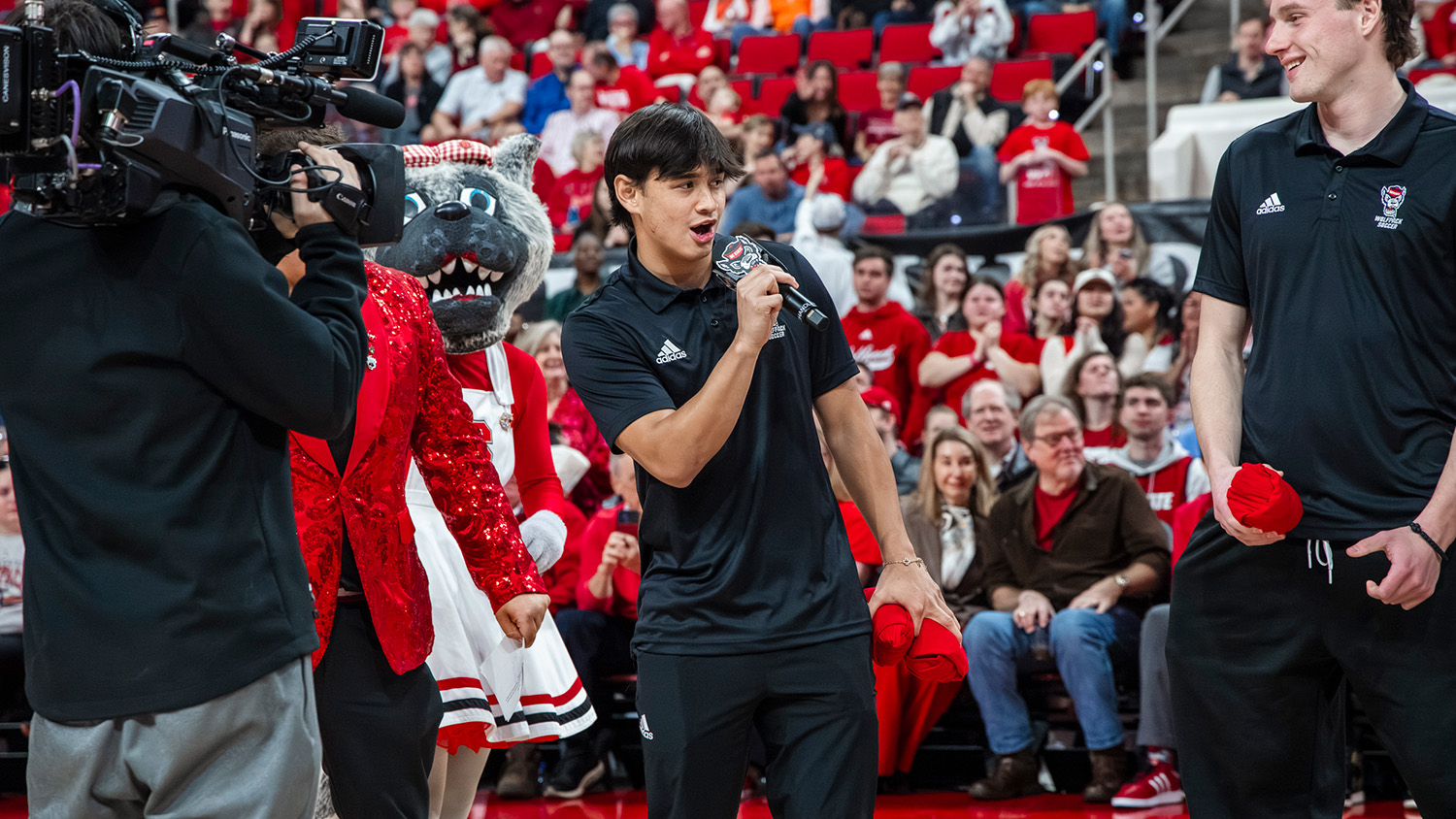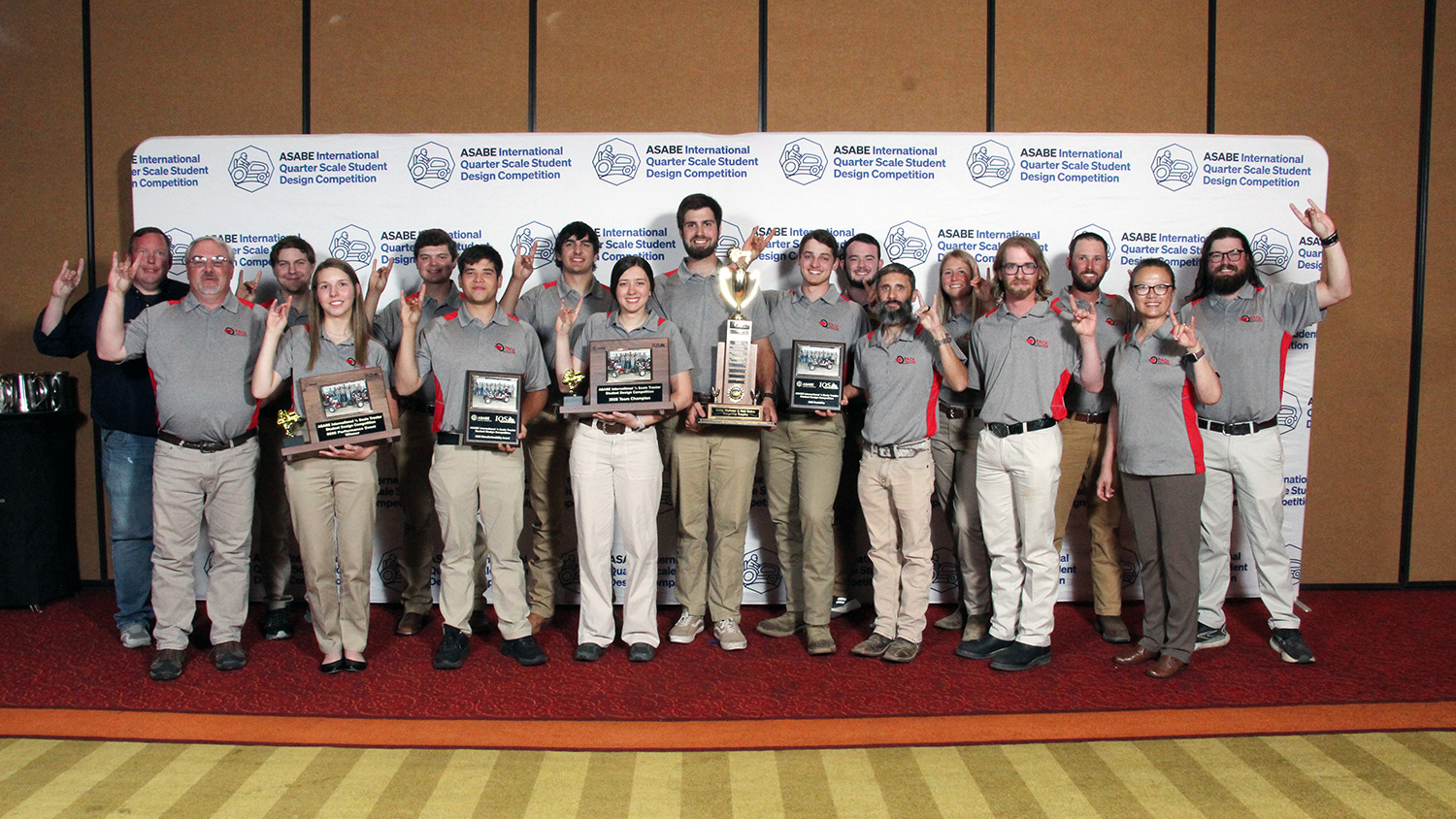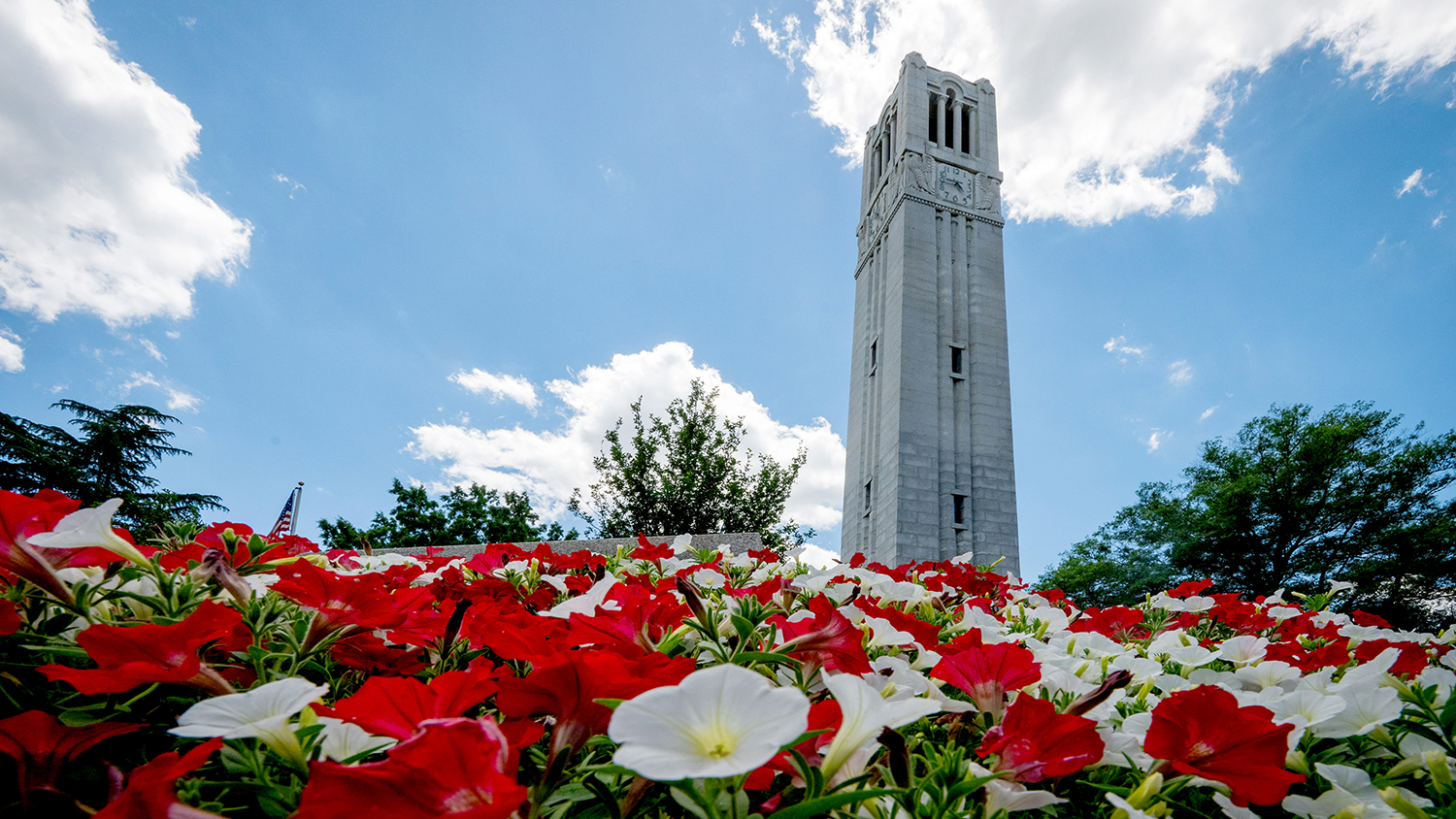When Caden Tolentino, a junior studying electrical engineering and a midfielder on the Wolfpack’s varsity men’s soccer team, arrived NC State, he experienced firsthand the benefits offered by the Academic Support Program for Student-Athletes (ASPSA).
Tolentino, who played for North Carolina FC’s Academy team, and also signed an amateur contract to make his pro debut with the club before coming to NC State, explained that the program offers various levels of support tailored to students’ individual needs, and that ASPSA helped him with adjusting to college life, and the time management skills needed to succeed as an NCAA Division-1 student-athlete.
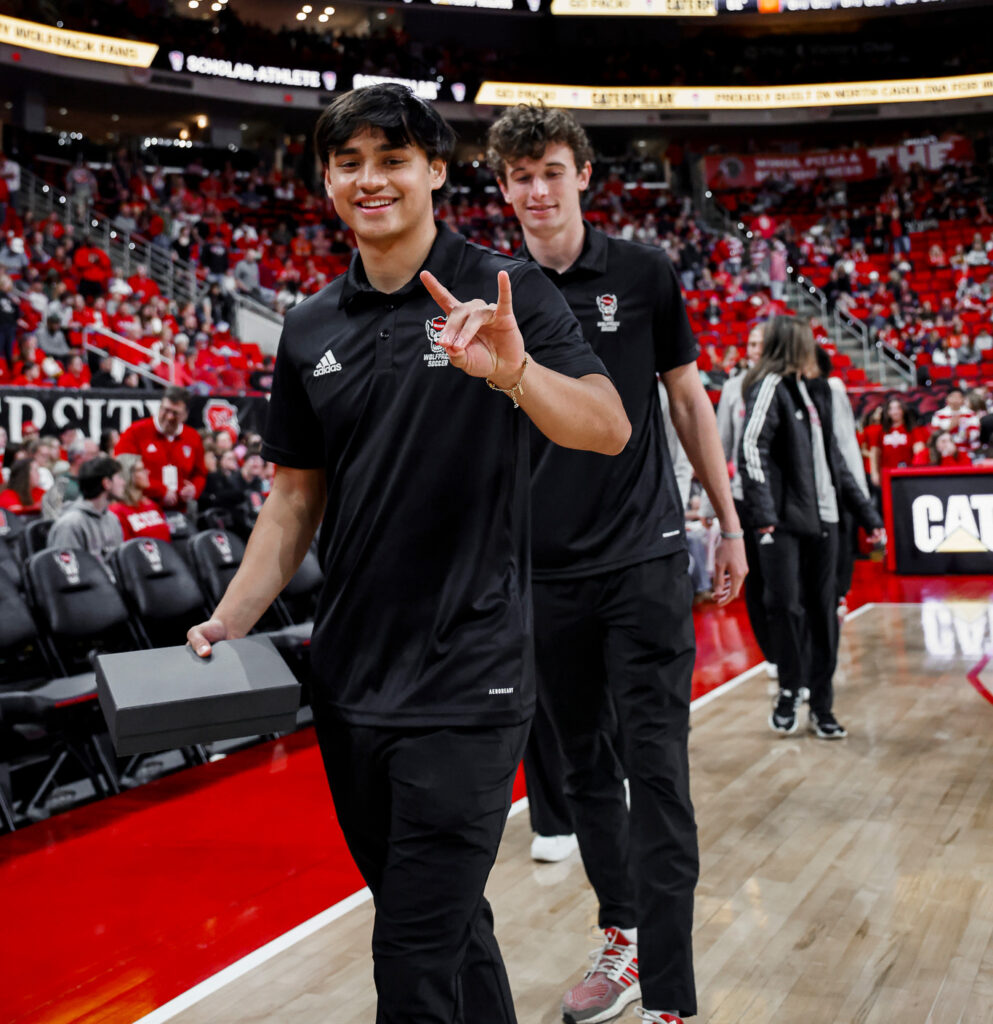
“It’s a tremendous resource that we have,” Tolentino said.
Fast forward three years, and Tolentino now works tirelessly to help offer the same levels of support and advocacy to his fellow student-athletes.
The second semester of his first year, he was nominated by his teammates and coaches to join the Student-Athlete Advisory Committee (SAAC), a group of student-athletes that work to enhance the experience and well-being of student-athletes at NC State.
“When you’re chosen by other people, it instills that confidence in you to become a leader and continue on that path. “
This year, Tolentino was chosen as the committee’s new president.
“I was honored,” Tolentino said. “I think at times, it’s tough to choose to be a leader. But when you’re chosen by other people, it instills that confidence in you to become a leader and continue on that path. So I think it was really important for me, and all of us on the Student-Athlete Advisory Committee. We have people who will go on to do great things in their community.”
Tolentino explained that SAAC has three different branches: mental health, community service and legislation.
“To whom much is given, much will be required.”
The committee advises all NC State student-athletes and works together to make decisions that benefit them, including working with faculty on ways to support student-athletes, organizing mental health initiatives, working with legislators on ways to protect student-athletes and organizing volunteer and community service work for student-athletes.
“There’s a quote that ‘To whom much is given, much will be required.’ I think as student-athletes, we’re given a lot,” Tolentino said. “A lot of people care about us, and we’re given all of these resources. So we have to do our part to give back to the community as well, to give back to our peers, to give back to those who are going to be the next generation as student-athletes.”
Patrick Peterson, an academic coordinator for NC State Athletics, began working with Tolentino his first year at NC State.
He quickly saw the potential for Tolentino, who currently carries a 4.0 GPA, to thrive both on and off the field as a leader for his fellow student-athletes.
“It’s invaluable when you have someone like that on a team,” Peterson said. “I think it’s good to have someone on your team that shows the things that you can do outside of being a soccer player or someone who’s a good student, but also who does those additional things such as being president of SAAC. That’s very important to have the Cadens of the world that can lead by example.”
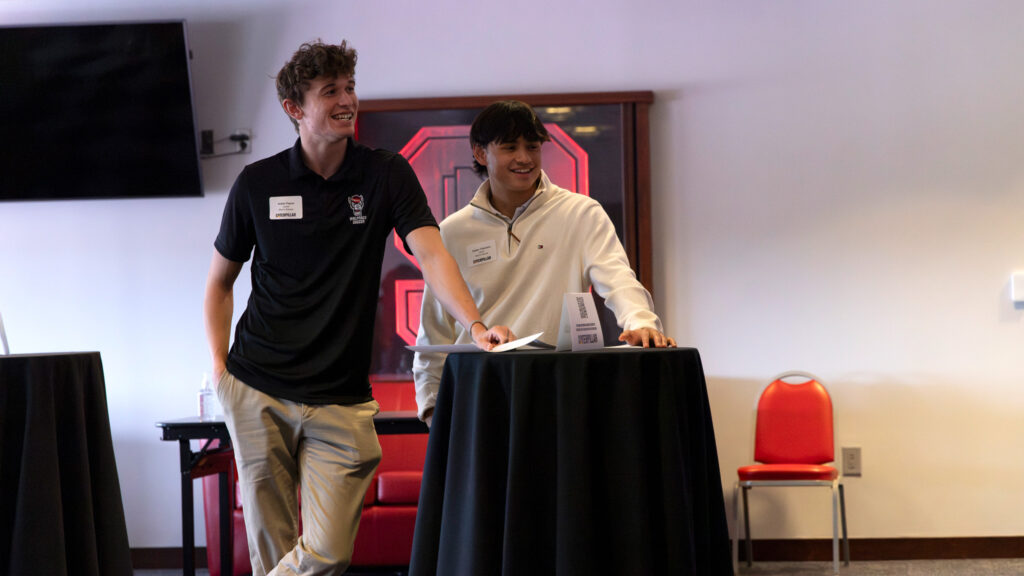
Recently, Tolentino and SAAC have worked on a plan to address roster caps that the NCAA will place on programs next school year, leading to student-athletes being cut from teams. This plan will implement a transition plan for these student-athletes, and ensure they still have adequate resources to support them.
In his future career in electrical engineering, Tolentino hopes to apply the leadership and organizational skills he’s learned through SAAC to work in a leadership/management role, and cultivate a positive culture wherever he ends up working.
“I would say there’s a direct translation, not only in the Student-Athlete Advisory Committee, but also within the team,” Tolentino said. “At a team level, you have a job on the field and off the field to maintain a standard within a group of people, just like you would in the workforce. You also have the ability to raise the level of those around you. Within that sense, you’re fostering a culture within the team. And then in the Student-Athlete Advisory committee, it’s the same microcosm. As the president, I have a role to foster that culture and get to know people, to delegate. We have three different branches — mental health, community service and legislative, and I think delegating those is the exact chain of how a company model would work.
This post was originally published in DASA.
- Categories:
